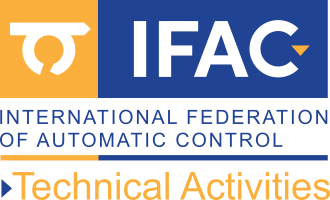Scope of TC 4.1
[Home] [Scope] [Members] [Newsletter] [Events / Activities]
Scope of Interest
The TC 4.1 is concerned with complex technical or social systems where human factors and tight human-machine interaction/coupling play a significant or indispensable role as an integral component. It is primarily aimed at promoting analysis, design, modeling, optimization, control, and evaluation/assessment of human-machine systems (HMS), human-automation interaction, human-systems integration, and brain-machine interfacing systems.
Its key topics may include, but not limited to:
- decision making and cognitive processes
- modeling, analysis, assessment, optimization and regulation of human performance (reliability, resilience, mental workload, situation awareness)
- human and organizational factors in Industry 4.0
- applied, virtual, or augmented environments
- design, analysis and performance evaluation methodology
- task or functional allocation
- intelligent or adaptive human-machine interfaces
- human operator support and functional state assessment
- job design and work organization
- human operator selection and training
- human-machine interaction (HMI)
- cognitive human-machine systems
- human-computer interaction (HCI)
- human-machine symbiosis
- brain-machine interaction
- brain-computer interface
- brain-computer interaction
- human-automation interaction
- human-robot interaction
- human-AI interaction
- human-systems integration
- neuroergonomics
- neurocomputing and psychophysiological computing
- natural cognition
- adaptive automation (or adjustable autonomy)
- adaptive aiding/assistance
- social, ethical and legal implications/impacts of complex HMS
This TC encourages theoretical or applied contributions, to its (mainly or co-) sponsored scientific events, which can be roughly divided into three clusters:
• Safety, security, efficiency and effectiveness of HMS (Keywords: cognitive task analysis; task/function allocation; risk assessment; accident analysis; operational risk analysis; human performance modelling, analysis and evaluation; organizational, technical and human reliability analysis and control; performance evaluation, workload or stress; resilience engineering; dissonance engineering; human stability; models of perception, problem-solving and decision-making; situation awareness; neuro-ergonomics; virtual reality; augmented reality; emotion or affective computing and pattern recognition; human trust in automation; Kansei engineering; collaboration, cooperation, competition and communication)
• Design, analysis, modeling, optimization, control, supervision and evaluation/assessment of HMS (Keywords: human-centric design; human-centric computing; work organization design; job design; team design; remote control, coordination or supervision; wearable device/sensor; distributed multi-agent systems; human error or fault diagnosis; learning; knowledge support; embedded automation systems in shared environments; collaborative or cooperative systems and control; human-automation interaction; human-automation co-agency)
• Human-machine interfaces and brain-machine/computer interfaces (Keywords: graphical user interfaces; auditory interfaces; multimedia design; network and web interfaces; multi-modal interactions in real and virtual environments; functional and adaptive interfaces; sensory modalities; user preferences; user engagement; usability; support for operational risk management, system operation, or maintenance; information management and knowledge retrieval)
Application examples:
computer simulations; experiments; processing, production, quality control, marketing, finance; delivery and services in the innovative and traditional industries; robots, manipulators, telerobotics and teleoperation; computer-aided design and human-integrated manufacturing; intelligent vehicle or transportation systems (car, truck, rail, aircraft, spacecraft, maglev, ship); air traffic control and supervision, automotive systems and aerospace; information systems; energy saving and resource recycling; nuclear and other power systems; chemical and other continuous processes; disaster prevention systems; medical engineering or technology, biomedical systems and biomechanics; disabled and elderly users; education support; command, control, and communication systems; mobile networking, virtual reality, telepresence; game and entertainment; computer-supported collaborative work; management information systems; enterprise systems; agriculture.

